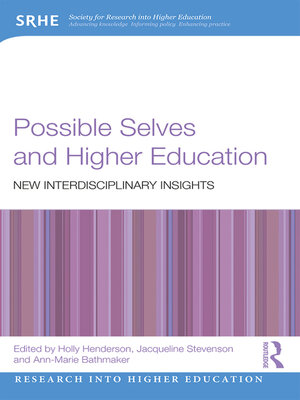Possible Selves and Higher Education
ebook ∣ New Interdisciplinary Insights · Research into Higher Education
By Holly Henderson

Sign up to save your library
With an OverDrive account, you can save your favorite libraries for at-a-glance information about availability. Find out more about OverDrive accounts.
Find this title in Libby, the library reading app by OverDrive.



Search for a digital library with this title
Title found at these libraries:
| Library Name | Distance |
|---|---|
| Loading... |
Drawing together example studies from international contexts, this edited collection provides a new and cross-disciplinary perspective on the concept of the possible self, exploring its theoretical, methodological and empirical uses with regards to Higher Education. Building on research which examines the ways in which possible selves are constructed through inequalities of class, race and gender, the book interrogates the role of imagined futures in student, professional and academic lives, augmenting the concept of possible selves, with its origins in psychology, with sociological approaches to educational inequalities and exclusionary practices.
Possible Selves and Higher Education considers both the theoretical and methodological frameworks behind the concept of possible selves; the first section includes chapters that consider different theoretical insights, while the second section offers empirical examples, exploring how the possible selves concept has been used in many diverse higher education research contexts. With each chapter considering a different aspect of the structural barriers to or within education, the examples provided range from the experiences of students and teachers in the language learning classroom, to graduates entering employment for the first time, and refugees seeking to rebuild lives through engagement with education.
Offering a broad and diverse examination of how concepts of our future selves can affect and limit educational outcomes, this book furthers the sociological dialogue concerning the relationship between individual agency and structural constraints in higher education research. It is an essential and influential text for both students and academics, as well as anyone responsible for student services such as outreach and widening participation.







